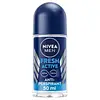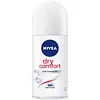What's inside
What's inside
 Key Ingredients
Key Ingredients

No key ingredients
 Benefits
Benefits

 Concerns
Concerns

 Ingredients Side-by-side
Ingredients Side-by-side

Water
Skin ConditioningAluminum Chlorohydrate
AstringentIsoceteth-20
EmulsifyingParaffinum Liquidum
EmollientButylene Glycol
HumectantGlyceryl Isostearate
EmollientParfum
MaskingMaris Limus Extract
Skin ProtectingOstrea Shell Extract
Persea Gratissima Oil
Skin ConditioningPropylene Glycol
HumectantPEG-150 Distearate
EmulsifyingSodium Benzoate
MaskingPotassium Sorbate
PreservativeLactic Acid
BufferingGeraniol
PerfumingBenzyl Alcohol
PerfumingWater
Skin ConditioningAluminum Chlorohydrate
AstringentPPG-15 Stearyl Ether
EmollientSteareth-2
EmulsifyingSteareth-21
CleansingAluminum Sesquichlorohydrate
AstringentParfum
MaskingMagnesium Aluminum Silicate
AbsorbentPersea Gratissima Oil
Skin ConditioningTrisodium EDTA
BHT
AntioxidantLinalool
PerfumingLimonene
PerfumingBenzyl Alcohol
PerfumingAlpha-Isomethyl Ionone
PerfumingCitronellol
PerfumingGeraniol
PerfumingBenzyl Salicylate
Perfuming
 Reviews
Reviews

Ingredients Explained
These ingredients are found in both products.
Ingredients higher up in an ingredient list are typically present in a larger amount.
Aluminum Chlorohydrate has astringent, deodorant, antiperspirant, and water purifying properties.
Due to its astringent properties, this ingredient may be drying.
Aluminum chlorohydrate is one of the most common active ingredients found in antiperspirants. It works by temporarily blocking sweat ducts, reducing the amount of sweat that reaches the surface of the skin.
Despite its long history of use, rumors and misconceptions about aluminum chlorohydrate persist.
Scientific consensus and major health organizations have repeatedly concluded that aluminum chlorohydrate, when used as directed in cosmetic products like antiperspirants, is safe.
The persistent rumors connecting aluminum chlorohydrate to cancer, Alzheimer’s disease, or “toxin buildup” are not supported by credible evidence.
If you’re comfortable with aluminum-based antiperspirants, there is no scientifically backed reason to fear them.
If you prefer to avoid them, plenty of aluminum-free options exist - but that choice usually comes down to personal preference rather than proven health risks.
Learn more about Aluminum ChlorohydrateBenzyl Alcohol is most commonly used as a preservative. It also has a subtle, sweet smell. Small amounts of Benzyl Alcohol is not irritating and safe to use in skincare products. Most Benzyl Alcohol is derived from fruits such as apricots.
Benzyl Alcohol has both antibacterial and antioxidant properties. These properties help lengthen the shelf life of products. Benzyl Alcohol is a solvent and helps dissolve other ingredients. It can also improve the texture and spreadability.
Alcohol comes in many different forms. Different types of alcohol will have different effects on skin. This ingredient is an astringent alcohol.
Using high concentrations of these alcohols are drying on the skin. They may strip away your skin's natural oils and even damage your skin barrier. Astringent alcohols may also irritate skin.
Other types of astringent alcohols include:
According to the National Rosacea Society based in the US, you should be mindful of products with these alcohols in the top half of ingredients.
Any type of sanitizing product will have high amounts of alcohol to help kill bacteria and viruses.
Learn more about Benzyl AlcoholGeraniol is used to add fragrance/parfum to a product. It is the main component of citronellol. It is a monoterpenoid and an alcohol.
Monoterpenes are naturally found in many parts of different plants.
Geraniol can be found in many essential oils including Rose Oil and Citronella Oil. The scent of Geraniol is often described as "rose-like". Many foods also contain Geraniol for fruit flavoring.
Geraniol can irritate the skin when exposed to air. However, irritation depends on the ability of geraniol to penetrate into the skin. In general, geraniol is not able to penetrate skin easily.
Geraniol is colorless and has low water-solubility. However, it is soluble in common organic solvents.
Like citronellol, it is a natural insect repellent.
2,6-Octadien-1-ol, 3,7-dimethyl-, (2E)-
Learn more about GeraniolParfum is a catch-all term for an ingredient or more that is used to give a scent to products.
Also called "fragrance", this ingredient can be a blend of hundreds of chemicals or plant oils. This means every product with "fragrance" or "parfum" in the ingredients list is a different mixture.
For instance, Habanolide is a proprietary trade name for a specific aroma chemical. When used as a fragrance ingredient in cosmetics, most aroma chemicals fall under the broad labeling category of “FRAGRANCE” or “PARFUM” according to EU and US regulations.
The term 'parfum' or 'fragrance' is not regulated in many countries. In many cases, it is up to the brand to define this term.
For instance, many brands choose to label themselves as "fragrance-free" because they are not using synthetic fragrances. However, their products may still contain ingredients such as essential oils that are considered a fragrance by INCI standards.
One example is Calendula flower extract. Calendula is an essential oil that still imparts a scent or 'fragrance'.
Depending on the blend, the ingredients in the mixture can cause allergies and sensitivities on the skin. Some ingredients that are known EU allergens include linalool and citronellol.
Parfum can also be used to mask or cover an unpleasant scent.
The bottom line is: not all fragrances/parfum/ingredients are created equally. If you are worried about fragrances, we recommend taking a closer look at an ingredient. And of course, we always recommend speaking with a professional.
Learn more about ParfumPersea Gratissima Oil is also known as avocado oil.
Avocado Oil has antioxidant properties. It is mostly made up of the glycerides of fatty acids. About 67% of these fatty acids is made up of oleic acid. Palmitic acid and linoleic acid are also present.
These fatty acids help hydrate and soften the skin. It may increase collagen content in the skin. Collagen helps keep your skin plump and firm. This ingredient helps reduce inflammation and has not shown to clog pores.
This ingredient may not be fungal-acne safe due to its high fatty acid content.
Avocados also have B vitamins, vitamin K, vitamin C, vitamin E, and potassium.
Learn more about Persea Gratissima OilWater. It's the most common cosmetic ingredient of all. You'll usually see it at the top of ingredient lists, meaning that it makes up the largest part of the product.
So why is it so popular? Water most often acts as a solvent - this means that it helps dissolve other ingredients into the formulation.
You'll also recognize water as that liquid we all need to stay alive. If you see this, drink a glass of water. Stay hydrated!
Learn more about Water